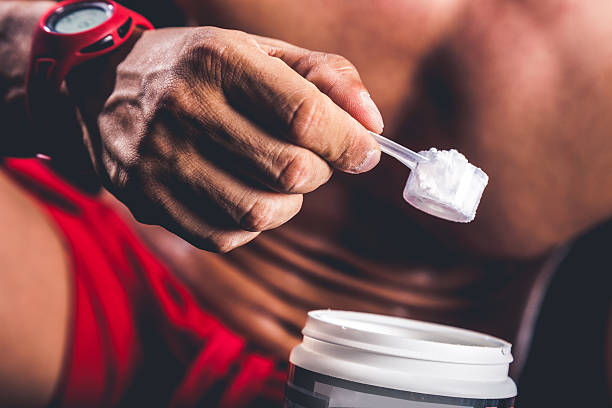Dry scooping refers to the practice of consuming pre-workout supplements, such as powders or capsules, without first mixing them with water or another liquid. Instead, individuals may scoop the powder directly into their mouth and swallow it with water or another beverage.
Dry scooping has gained popularity among some fitness enthusiasts who think that it increases the effectiveness of the supplement. One TikTok user named kimg966 shared a video which had nearly 10 million views in which she attempted to swallow one whole cap of the supplement ended up gagging and spitting it out. Another TikTok user mkaaaybabee inhaled the powder by accident and wasn’t able to breathe.
Dry scooping can indeed be dangerous, as the concentrated powder could trigger throat irritation, choking and heart problems. Experts recommend that you pre-mix pre-workout supplements with liquid (preferably water) before consumption.
What Science Has to Say About Dry Scooping
Two recent scientific studies have assessed the prevalence of dry scooping and other risky pre-workout consumption methods, shedding light on why people might engage in a behavior that has the potential to cause harm.
One of the studies, published in the journal Pediatrics in 2022, looked at the number of dry scooping videos on TikTok and found that 31 percent of relevant videos featured the practice. These videos were extremely popular, getting close to 8.2 million LIKES. The other study, published in the journal Eating Behaviors in January 2023, found that 16.9 percent of Canadian adolescents and young adults surveyed reported dry scooping in the previous 12 months.
The studies found that dry scooping is particularly prevalent among young men, individuals who spend more time on social media, and those who display clinically significant symptoms of muscle dysmorphia. The popularity of the trend, particularly among certain groups, is problematic because there is no scientific basis for its safety or efficacy.
Kyle T. Ganson, PhD, an assistant professor at the Factor-Inwentash Faculty of Social Work at the University of Toronto and co-author of the Eating Behaviors study, explains that people are “drawn to the behavior because of its purported benefits within gym culture and popular media.”
However, he emphasizes that there is no prior analysis of this dietary practice, which should be a red flag for people to consider prior to engagement.
Pre-workouts themselves only have mixed levels of support from scientific research. While they may have some benefits, such as increased energy and focus during workouts, they can also have negative side effects, including heart palpitations, high blood pressure, and kidney damage.
Moreover, the ingredients in pre-workouts are not regulated by the Food and Drug Administration (FDA), meaning that there is no guarantee of their safety or effectiveness.
Safety of Pre-Workout Powders
Pre-workout powders can be safe when used properly and in moderation, but like any dietary supplement, they can also carry some risks.
Pre-workout powders often contain a blend of ingredients designed to enhance athletic performance, such as caffeine, creatine, beta-alanine, and nitric oxide boosters. While these ingredients can have benefits, they can also have potential side effects, particularly when used in high doses or combined with other supplements or medications.
One of the primary concerns with pre-workout powders is their caffeine content. Many pre-workout supplements contain high amounts of caffeine, which can cause jitters, anxiety, and insomnia in some individuals. In addition, caffeine can increase heart rate and blood pressure, which can be dangerous for people with certain medical conditions.
Other potential side effects of pre-workout powders may include digestive issues, headaches, and allergic reactions. Some pre-workout supplements may also contain unsafe or untested ingredients, particularly those sold online or through unauthorized retailers.
To ensure the safety of pre-workout powders, it is important to follow the recommended dosages, avoid combining multiple supplements or medications without consulting a healthcare professional, and purchase supplements from reputable sources. It is also important to listen to your body and stop using pre-workout powders if you experience any adverse effects.
Here’s how to properly use preworkout supplements:
